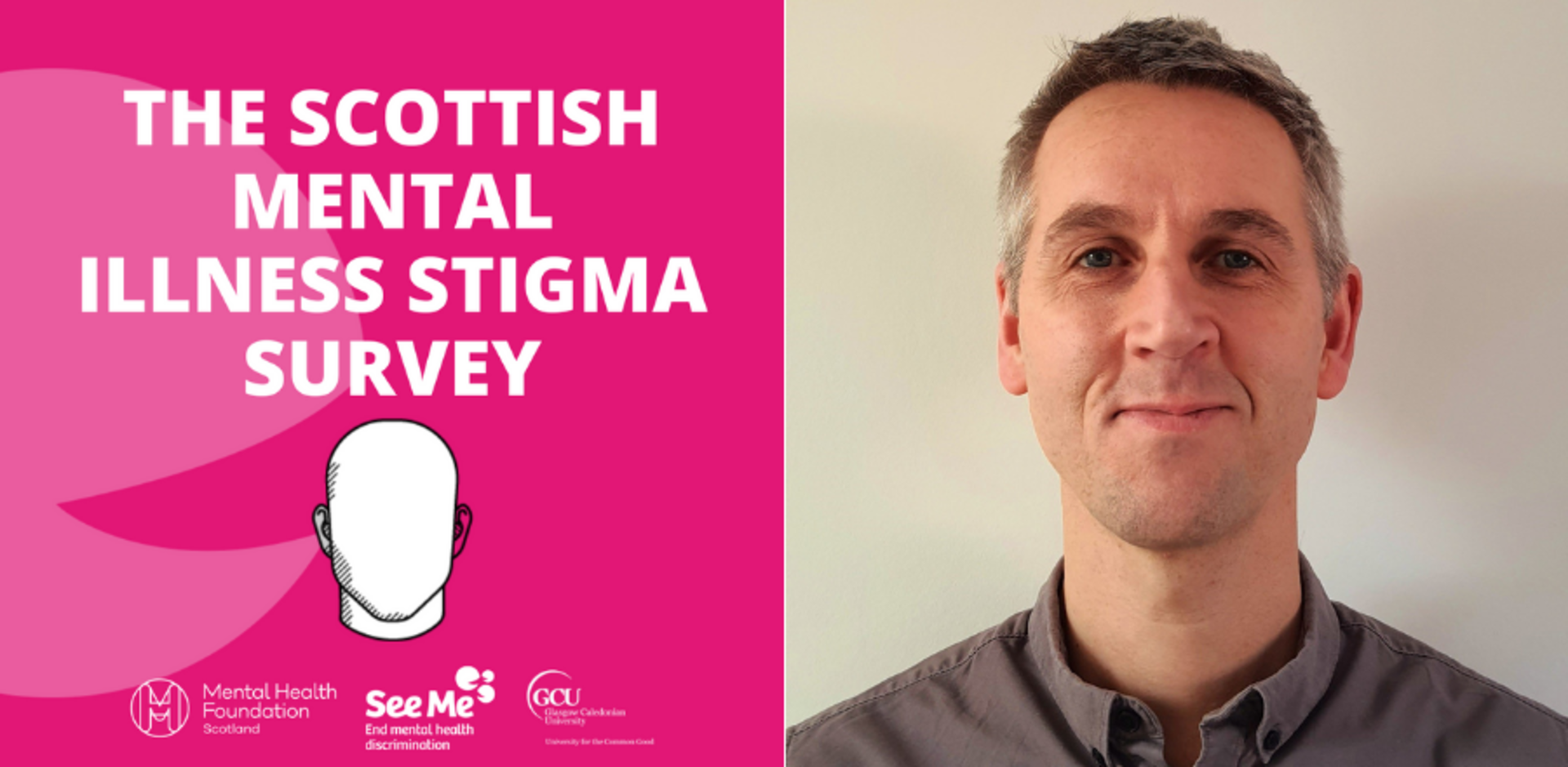GCU at forefront of mental health stigma research

A first-of-its-kind survey is calling on people with experience of complex mental illnesses to share their views and experiences of stigma and discrimination to help shape policy, support and services in Scotland.
Led by Scotland’s national programme to end mental health stigma and discrimination See Me and the Mental Health Foundation Scotland, in partnership with Glasgow Caledonian University (GCU), the Scottish Mental Illness Stigma Survey is recruiting participants aged 18 and over from across Scotland, who have experience of mental illnesses.
GCU Professor of Applied Psychology Simon Hunter, who is also the Child and Adolescent Health Research Group Lead, said: “This ground-breaking research is a wonderful opportunity for people to share their experiences of stigma related to severe, complex and/or enduring mental illnesses. Stigma can be present in many areas of people’s lives, from housing and employment to the relationships we have with friends and family.
“I’m immensely proud to be involved in this project and expect it to inform our national strategies tackling this type of stigma in the coming years. Applying psychology to real-life issues is core to our mission in Psychology at Glasgow Caledonian University and this project will contribute toward the University’s aim of working for the common good in society.”
The in-depth survey seeks to find out more about the real-life experiences of people with complex mental illnesses and the stigma that they continue to face. The survey will explore how and where people face stigma, self-stigma, the impact this has on them, and what needs to be done to make their lives better.
Liam Rankin, from East Kilbride, was diagnosed with schizophrenia at the age of 16. Now 53, he has experienced stigma and discrimination in a range of different settings over the years because of his mental health condition.
Liam said: “I’ve had some people react really negatively to me – I used to coach a kids’ football team, and when one of the dads found out about my mental health, he challenged me. He said I wasn’t safe to be working with kids.
“I’ve seen stigma in the workplace, in the police service, in healthcare. Recently, I had to go to accident and emergency after hurting myself, and a doctor told me that I was wasting their resources because I’d done this to myself.”
Liam knows that he’s not alone in these experiences – and says that the survey has real potential to make a difference for people like him.
He said: “By listening to people’s experiences, we can make change. More serious mental health problems are still hugely stigmatised in society, in the media, in books and in films. People assume they understand what it is – but this survey will show what life is really like.
“By taking part in the survey, you can have a real impact – for yourself, for your family and friends, and for other people who are struggling.”
The research project is one of the first major activities to come from See Me’s recently-launched See Us movement to end mental health stigma and discrimination in Scotland.
The survey is open to both people who have received a formal diagnosis, as well as those who have not been diagnosed formally but believe they may be experiencing one or more complex mental illnesses.
The data collected through the survey will be analysed and used to address some of the most pervasive and severe stigma and discrimination that people in Scotland with experience of mental illnesses face.
Wendy Halliday, director of See Me, said: “The Scottish Mental Illness Stigma Survey will allow us, for the first time ever, to build a more complete picture of the stigma and discrimination that those with the most serious, complex mental health conditions in Scotland face.
“This is a really exciting piece of work, with real potential to make a difference for thousands of people. By taking part, participants will be a part of the See Us movement, taking action which will create real change for themselves and those who need it, by identifying where stigma and discrimination is worst.”
Lee Knifton, Director of Mental Health Foundation in Scotland and Northern Ireland, said: “While knowledge and attitudes towards people with mental health problems is improving, there is still a long way to go to achieve equality and justice. Prejudice remains widespread.
“The findings of the Scottish Mental Illness Stigma Survey will help us build an essential evidence base that will shape our priorities, and that of the Scottish Government more broadly, in the years to come. By ensuring that we listen and respond to the priorities of people in Scotland who live with mental health conditions, we can create a Scotland that is free of mental health stigma and discrimination.”
